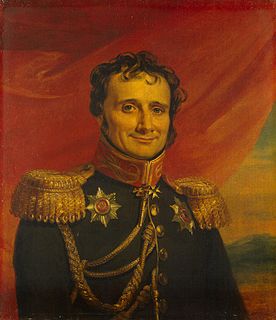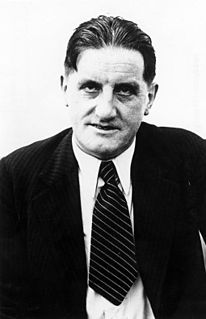A Quote by George Orwell
One always abandons something in retreat. Look at Napoleon at the Beresina! He abandoned his whole army.
Related Quotes
There are three ways in which a ruler can bring misfortune on his army: By commanding the army to advance or to retreat, being ignorant of the fact that it cannot obey. This is called hobbling the army. By attempting to govern an army in the same way as he administers a kingdom, being ignorant of the conditions which obtain in an army. This causes restlessness in the soldier's minds. By employing the officers of his army without discrimination, through ignorance of the military principle of adaptation to circumstances. This shakes the confidence of the soldiers.
It is certainly of great importance for a general to keep his plans secret; and Frederick the Great was right when he said that if his night-cap knew what was in his head he would throw it into the fire. That kind of secrecy was practicable in Frederick's time when his whole army was kept closely about him; but when maneuvers of the vastness of Napoleon's are executed, and war is waged as in our day, what concert of action can be expected from generals who are utterly ignorant of what is going on around them?
If you write, fix pipes, grade papers, lay bricks or drive a taxi - do it with a sense of pride. And do it the best you know how. Be cognizant and sympathetic to the guy alongside, because he wants a place in the sun, too. And always...always look past his color, his creed, his religion and the shape of his ears. Look for the whole person. Judge him as the whole person.
We as humans are so imperfect. We are always looking for something more and always going astray from Jesus. Whether you believe in him or not, but he is always there with open arms. God never abandons you. He is always waiting for you to come back and when you do, you won't be scolded - you will be embraced.
In a sermon entitled “God's Providence,” C. H. Spurgeon said, “Napoleon once heard it said, that man proposes and God disposes. 'Ah,' said Napoleon, 'but I propose and dispose too.' How do you think he proposed and disposed? He proposed to go and take Russia; he proposed to make all Europe his. He proposed to destroy that power, and how did he come back again? How had he disposed it? He came back solitary and alone, his mighty army perished and wasted, having well-nigh eaten and devoured one another through hunger. Man proposes and God disposes.
What the army is doing is cleaning those areas, and the indication that the army is strong is that it's making advancement in that area. It never went to one area and couldn't enter to it - that's an indication. How could that army do that if it's a family army or a sect army ? What about the rest of the country who support the government ? It's not realistic, it doesn't happen. Otherwise, the whole country will collapse.







































